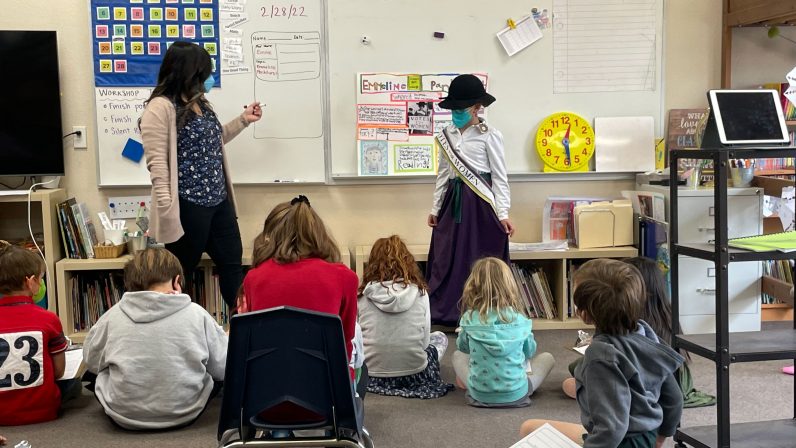In a recent interview with Mark Nepo, he offered an idea I’ve been thinking about for days. He said, “In the Middle Ages in Europe for about 300-350 years, only 10% of the European population was literate. That means 10% of the people living in Europe at that time kept literacy for 300 years. Whatever it is that we are facing that is dark, when we are awake it’s incumbent on us to keep the literacy of the heart alive. And that’s so important right now.” In other words, “He challenges us to be like the medieval monks who kept literacy alive during the Dark Ages in Europe ‘to commit to a life of care and to keep the literacy of the heart alive.’ ”
All week I’ve thought about literacy of the heart, particularly as examples keep appearing. In response to last week’s post about my friend Elsie Moore, one of our Seed alums wrote: “As an elementary teacher, I often think of her visits to the Seed when I was a kid. They had a powerful impact on me and continue to shape the learning experiences that I strive to create for my students.” When I stepped into the 1st/2nd grade classroom in time for a presentation about Emmeline Pankhurst, a women’s suffragette in the UK around the turn of the 20th century, it was a clear lesson in literacy of the heart. In that same class, as their study of change makers evolved, I witnesses one student in particular whose confidence and ownership grew immensely in the weeks they were involved with the work. You could see the growth in his heart expressed through his enthusiastically smiling face.
I thought of our work here as literacy of the heart while our lead teachers watched the beautiful anti-bias film. The film demonstrates the social justice standards originally developed through the anti-bias curriculum and now included in materials from Learning for Justice. In December I attended a webinar called, “Unpacking the Social Justice Standards.” I shared my notes with the teachers. Here are a few relevant points:
- work with the standards is unfinished business
- as we do this work we are being asked to seek authenticity over comfort
- it’s a process that embraces messiness and kindness
- this work invites us to listen with the same passion with which we wish to be heard
- this work is necessary and more doable than we think
- we have to trust our students and their thinking
- we can’t teach exclusive of the world we live in
As we finished watching the movie, we sat in silence for a few moments before speaking. It seemed like a mixture of appreciation for our school and the work we’re already doing, and the huge amount of social justice work that remains. The film reminded us that this work is messy, unfinished business, and that our classrooms must be places filled with windows to gaze out into the world, and mirrors for self-reflection. At the end this question was posed: How will your voice shape this vision?
Writing is definitely one practice I will personally continue, as a contribution to a vision of justice and equity. As a staff, our engagement in conversations that sometimes make us uncomfortable is another way we are moving the vision forward. We are all still learning, taking time for self-examination, and working together to create a space in which children can grow their literacy of the heart. As we do this, we build a container to hold space for those who need our energy and light. For all the people and places in the world where peace is much needed, I leave you with these words from John O’Donohue:
FOR PEACE
As the fever of day calms towards twilight
May all that is strained in us come to ease.
We pray for all who suffered violence today,
May an unexpected serenity surprise them.
For those who risk their lives each day for peace,
May their hearts glimpse providence at the heart of history.
That those who make riches from violence and war
Might hear in their dreams the cries of the lost.
That we might see through our fear of each other
A new vision to heal our fatal attraction to aggression.
That those who enjoy the privilege of peace
Might not forget their tormented brothers and sisters.
That the wolf might lie down with the lamb,
That our swords be beaten into ploughshares
And no hurt or harm be done
Anywhere along the holy mountain.

